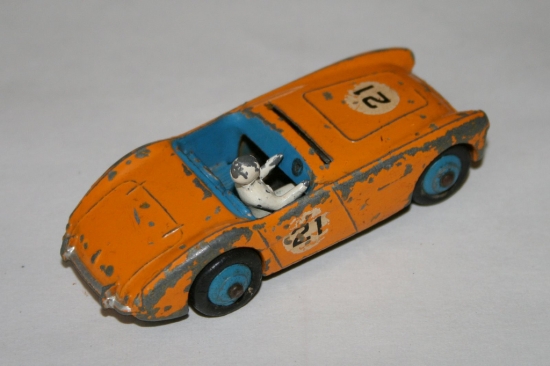Iconic British toymaker Hornby has posted annual losses, 150 years after the birth of its founder Frank Hornby. The firm, which also owns Corgi and Airfix, posted a pre-tax loss of £3.4 million in the year to March, blaming problems in its supply chain and a drop in consumer demand for the disappointing result.

Like for like sales in the UK certainly fell significantly – as the UK market accounts for almost two thirds of overall revenue, the 5 per cent decrease had strong repercussions for the business as a whole.
Furthermore, problems in the Italian branch of the business forced directors to write off £2.4 million, and a further £0.7 million was written down due to one-off restructuring costs. The combined effect of these hits to overhead profits was an underlying profit of £0.15 million, comparing poorly to the previous year’s £4.5 million total.
According to Hornby, the failure of its London 2012 Olympics merchandise played a huge role in the poor annual performance, saying the venture was “not only loss making but was a distraction from the core business for both our customers and management.”
Before the start of the Games, the model maker had hoped the event would provide a boost for business, believing that tourists would snap up black cabs and red buses in order to take a little taste of London back home with them.
However, the group acknowledges that problems within the running and organisation of the business itself played a far greater role than the losses made on poor merchandise sales.
In a statement, it said; “This year was one of challenging economic conditions in all of our major markets that were exacerbated by continuing disruptions to the model railway supply chain.
“We estimate that across the group, more than 10 per cent of product ordered was not delivered during the year with our European subsidiaries faring worse than the UK business.”
Hornby is now operational in both Europe and the USA, yet Eurozone difficulties and the ongoing economic worries in the UK have seen business suffer considerably. While chairman Roger Canham, who took over in November, believes the “strong brands” will pull the business back to profitability, he recognises that certain changes must be made in order to bring the firm into the 21st century.
He says; “Consumer confidence in all our major markets continues to be weak.
“The shape of the High Street is changing rapidly, our traditional wholesale customers are changing their retailing models, and we in turn are seeing the routes through which consumers purchase our products become increasingly digital and multichannel.”
Do you think that, if Hornby makes major investment into the improvement of its digital platform, sales will pick up again next year or has the business of model and toy making become somewhat obsolete in an age largely defined by the internet?